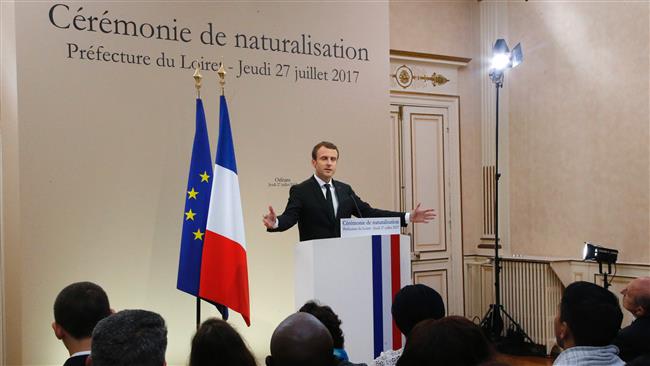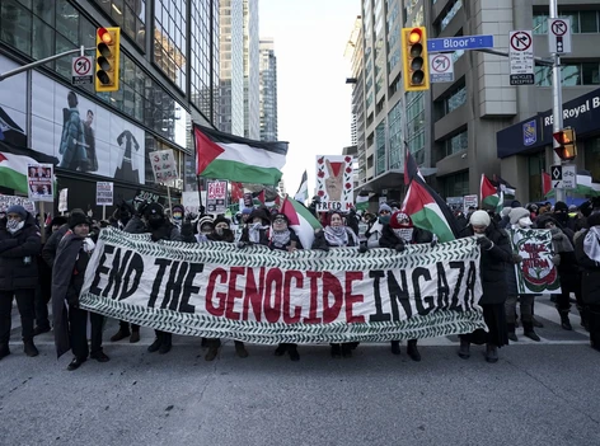President Emmanuel Macron has announced that France will set up processing centers in Libya for refugees and asylum seekers attempting to reach Europe through a perilous journey across the Mediterranean.
Macron made the announcement during a visit to a refugee shelter in the central French city of Orleans on Thursday. The president noted that the plan would be put in place "this summer," with or without other European Union member countries.
"The idea is to create hotspots to avoid people taking crazy risks when they are not all eligible for asylum. We'll go to them," media outlets quoted the French president as saying.
"We have between 800,000 and a million people in Libya -- in camps, hangars, there's not even a minimum of humanity," he said.
The president insisted that he was ready to go it alone, if necessary. "Other European countries are very reticent. We'll try to do it with Europe but we in France will do it."
Officials in the French presidency, however, cast doubt on whether the centers could be established that quickly. The say the security conditions were "not yet in place" across the violence-wracked North African country.
The plan also appeared to take the EU by surprise.
European Commission spokeswoman Natasha Bertaud, however, said the bloc was "open to discussing with any and all of our member states" ways to improve the situation in the Mediterranean.
The announcement came two days after Macron brokered talks in the French capital Paris between the leaders of the two rival authorities in the war-torn North African country, who committed to a conditional ceasefire.
Presenting the deal, Macron hoped a return to stability in Libya would check the outflow of refugees.
Libya now has two governments, one based in the capital, Tripoli, and the other based in the far east, in the city of Tobruk. The government in Tripoli is internationally recognized but the eastern-based parliament refuses to recognize it.
Smugglers, exploiting the chaos in Libya caused by the 2011 uprising, pack desperate refugees and asylum seekers onto ill-equipped boats, which are usually intercepted by European vessels once they enter international waters.

Refugees, who were rescued by the Libyan coastguard in the Mediterranean off the Libyan coast, arrive at a naval base in the capital Tripoli on May 26, 2017. (Photo by AFP)
However, some other boats capsize or become stranded when traffickers remove the engines for reuse. A number of other illegal boats get turned back by the Libyan coastguard.
During the past few years, Libya has served as a transit point for tens of thousands of undocumented refugees trying to reach Europe by sea.
According to the International Organization for Migration, since January, more than 100,000 people have made the perilous voyage across the water. Over 2,300 have drowned this year in the attempt.

Aid workers talk with refugees from Africa at a naval base in Tripoli after they were rescued by the Libyan coastguard in the Mediterranean Sea off the Libyan coast, on July 24, 2017. (Photo by AFP)
Europe has been facing an unprecedented influx of refugees, most of whom are fleeing conflict zones in North Africa and the Middle East, particularly Syria. Many blame major European powers for the exodus, saying their policies have led to a surge in terrorism and conflicts in the Middle East, displacing the locals.
Macron's refugee policy comes under criticism by rights group
During his campaign, Macron was fulsome in his praise of German Chancellor Angela Merkel's open-door policy for refugees.
But his government has taken a hard line with young refugees sleeping rough on the streets of the northern French port of Calais.
Rights groups have complained that riot police routinely use tear gas and pepper spray to break up the refugees' camps there.
LINK: https://www.ansarpress.com/english/7703
TAGS:































 Farkhunda Buried, Ghani Appoints Fact-Finding Team
Farkhunda Buried, Ghani Appoints Fact-Finding Team




